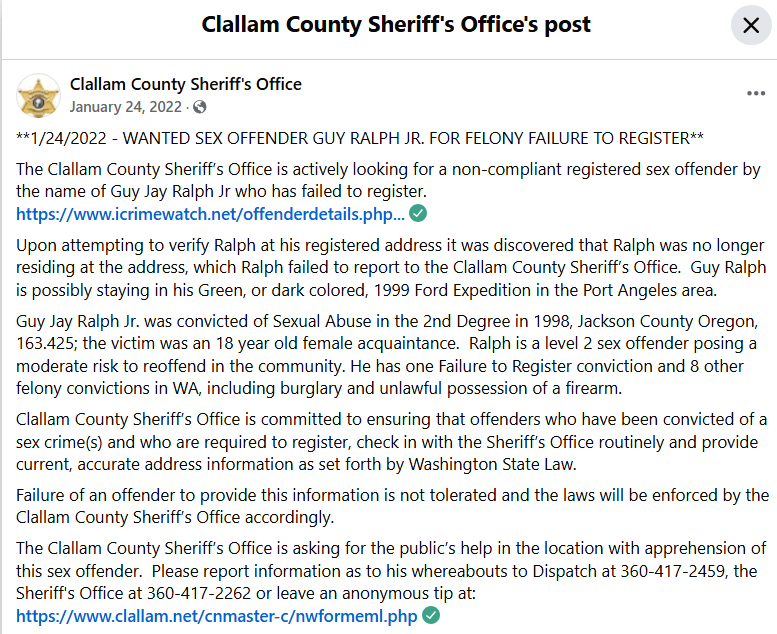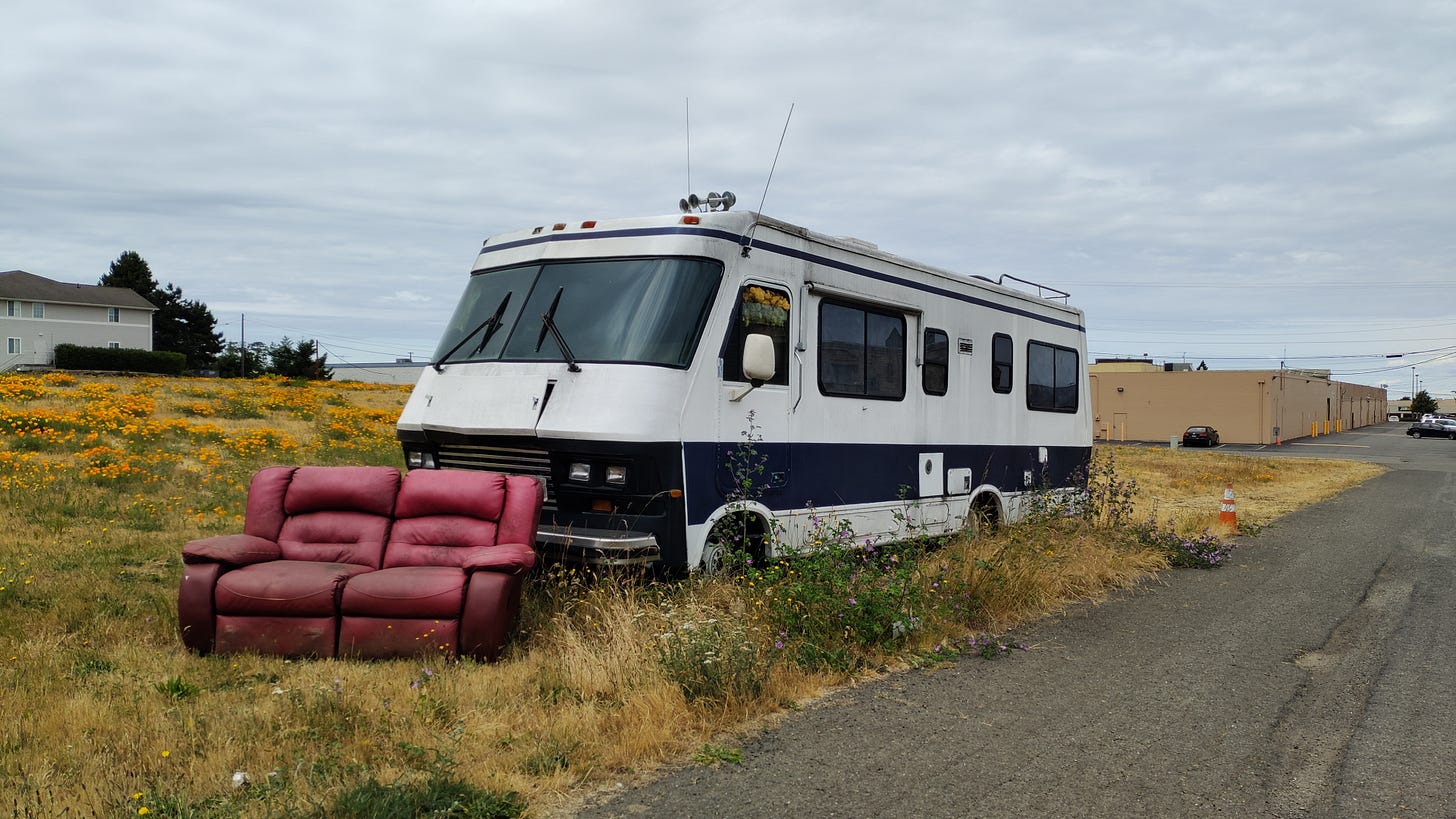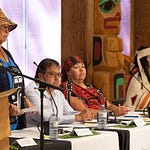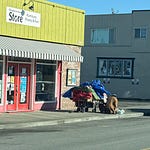Crime is rising, budgets are buckling, and public trust is wearing thin in Clallam County. While repeat offenders roam the streets and homelessness spreads, local leaders double down on progressive policies, selective enforcement, and identity-driven initiatives. From taxpayer-funded programs to tribal business advantages— is anyone still focused on the basics: safety, fairness, and accountability?
Repeat offender, repeat failure
Police recently arrested Guy Jay Ralph Jr. on charges including DUI and hit-and-run. Ralph is a Level 2 sex offender with a long criminal history, including a 1998 conviction for sexual abuse in Oregon, several burglary charges, and unlawful possession of a firearm.
In 2022, the Clallam County Sheriff’s Office had already flagged Ralph as non-compliant with registration requirements. Despite that, he remained at large and was reportedly living out of a vehicle in the Port Angeles area.
His reappearance raises the question: Are we doing enough to track and manage individuals with high-risk histories? Especially when other public policies—like those distributing drug-use kits—send mixed messages about accountability and public safety.
A visible, growing issue
Recent local media coverage has begun to reflect what many residents already feel—homelessness is becoming harder to ignore in both Port Angeles and Sequim.
It’s not just the paper; social media is buzzing with signs that we are on the wrong path.
While laws in places like Sequim restrict how long homeowners can park RVs in front of their own houses, enforcement appears uneven.
Some residents have noted vehicles parked for weeks or months.
This contrast highlights the disconnect between policy and enforcement, and raises questions about what the real priorities are.
A more lenient justice system
In a recent interview with the Forks Forum, Clallam County Prosecuting Attorney Mark Nichols explained that Washington, once known for its harsh sentencing laws—including the three strikes law—has become more lenient in the past decade, with a growing focus on early release and re-entry programs.
How is that working out?
Here is the Sequim Gazette’s police blotter from the third week of June this year:
Here it is for the same week in 2020:
Here it is for the same week in 2015:
When housing projects become political statements
As Habitat for Humanity of Clallam County cozies up to the Tribe, Habitat of East Jefferson County cozies up to Pride.
While inclusivity and visibility matter, some residents wonder whether identity-themed builds risk politicizing housing efforts that should serve everyone in need. When banners start to matter more than blueprints, the focus on basic shelter may be getting blurred.
Kitsap takes a cautious turn—will Clallam follow?
Facing a projected $8 million shortfall, Kitsap County recently enacted a hiring freeze through the end of 2025, aiming to get ahead of long-term financial pressures.
With Clallam’s Charter Review Commission considering the creation of a Water Steward Department—and what county commissioners call “expenditures exceeding revenues”—the move raises a bigger question: Is Clallam ready to tighten its belt if necessary?
Kitsap’s example might be a timely signal for other counties to examine their own spending habits before things reach a breaking point.
Cultural curriculum and complicated histories
The Sequim School District hosted a cultural training session led by the Jamestown S’Klallam Tribe, including content on the Trail of Tears and historic injustices faced by Native Americans.
However, a Smithsonian Magazine article complicates this narrative, noting that some tribes owned slaves and had complicated roles during that period.
“What you probably don’t picture are Cherokee slaveholders, foremost among them Cherokee chief John Ross. What you probably don’t picture are the numerous African-American slaves, Cherokee-owned, who made the brutal march themselves, or else were shipped en masse to what is now Oklahoma aboard cramped boats by their wealthy Indian masters. And what you may not know is that the federal policy of Indian removal, which ranged far beyond the Trail of Tears and the Cherokee, was not simply the vindictive scheme of Andrew Jackson, but rather a popularly endorsed, congressionally sanctioned campaign spanning the administrations of nine separate presidents.” — Smithsonian Magazine
This isn’t about diminishing Indigenous history—but about presenting it in full, especially in public education settings where nuance matters.
The Tribe’s economic role grows—And so do the questions
The Jamestown Tribe has been running ads highlighting its positive economic contributions through its 16 businesses.
And they are significant—offering jobs, services, and investment in the region. But some residents have pointed out that tribal enterprises often enjoy tax exemptions and regulatory advantages, allowing them to offer perks (like gas discounts, marijuana discounts, and free yoga) that other local businesses simply can't match.
As tribal businesses keep growing, it’s important to have a community-wide talk about fair competition and economic balance—so all local employers have a fair chance at success. Commissioner Mark Ozias assured that such a discussion would take place at a public work session in the first quarter of this year, but it did not happen.
Peninsula College’s targeted training
Peninsula College is expanding its natural resources program with support from NOAA grants—specifically to recruit and train Indigenous students.

While well-intentioned, these efforts have sparked quiet concerns in an economically depressed county: Should job training opportunities be based on need—or identity? In a region where opportunity is scarce, some argue that support should reach all struggling populations, regardless of race or background.
City bidding and identity labels
The City of Sequim encourages women-, minority-, and veteran-owned businesses to apply for contracting opportunities. This is common language in public procurement—but it can strike some people as unintentionally condescending.
Do these labels help level the playing field—or imply that some business owners need extra help to compete? It's worth asking whether inclusion efforts can be both supportive and equitable without reducing people to demographic checkboxes.
Fun Days are only weeks away
Let’s end with a reminder of what makes our region truly great: Clallam Bay Sekiu Fun Days are coming July 11th, 12th, and 13th, and everyone’s invited.
Sea glass hunt
Grand parade
Live music
Fun run
Fireworks
Whether you’re a fifth-generation Clallam resident or just visiting for the summer, this is a great way to connect with neighbors, celebrate tradition, and enjoy some well-earned fun.
Full details here: clallambaysekiufundays.info































